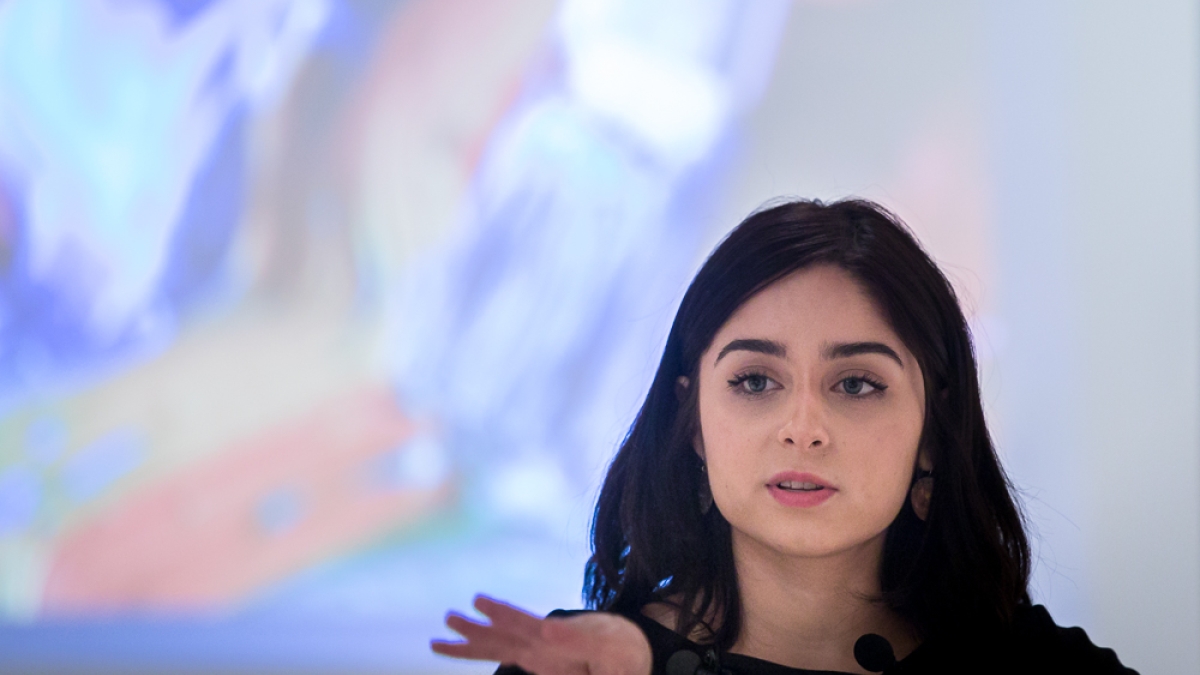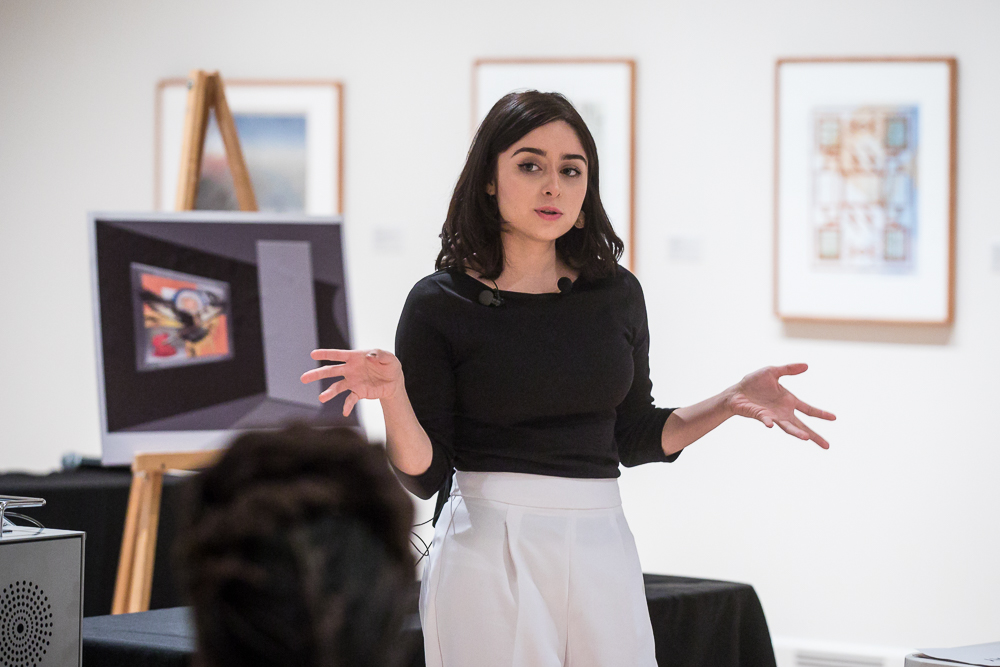Steven J. Tepper embraces the notion that building a better future starts with dreaming a better world; the Herberger Institute for Design and the Arts dean also recognizes that visions require time and space.
To that end, Tepper and an array of partners created a special incubator for futurist thinking at Arizona State University that allowed design and art students to investigate, research, interview, brainstorm and prototype ideas about technology, philanthropy, education, training and business models.
It was exactly the result he was looking for.
“We need artists and designers who have passion and energy and ideas and want to shape the world,” Tepper said at a presentation conference marking the end of the six-week/three-credit collaboration between the Herberger Institute, Vermont’s Bennington College and the L.A.-based Center for Cultural Innovation that was funded in part by a $40,000 grant from the Ford Foundation.
Tepper’s remarks kicked off two days of Studio for the Future of Arts and Culture charrettes, intense planning sessions where a lineup of students gave short presentations that sought to advance a radical idea for innovation in our culture — 50 years into the future.
In true Herberger Institute fashion, the discussions were wide-ranging and big-picture.
Bennington grad student Lauren Roshan said that in the future “art can truly save the life of a young black man or woman. The future of arts and culture does not alienate black artists and audiences from art.”
She said the conclusion came in part from her own experience as a black woman who found salvation through expression.
ASU graduate student Mitch Miller, meanwhile, said that “in the future the need for public spaces will be greater than the need for intellectual spaces” because observing and interpreting the world is at the root of creating art.
“Nobody brought the word ‘no’ into the room, and that’s part of the idea,” said Bennington President Mariko Silver, who helped develop the partnership. “It’s also not about making each other feel good, but how the team, bringing all of our perspectives together, can solve the issue.”
The charrettes, included all 13 participants — nine ASU and four Bennington students — as well as representatives from the two universities and fellows from the Center for Cultural Innovation.
Digital media junior Andrea Quiroz presents her vision the arts and culture in 50 years, at the Studio for the Future of Arts and Culture, in the ASU Art Museum, on Wednesday, Feb. 15. Quiroz sees the Art Delegate as a governmental attaché or translator for culture to facilitate mediation for both domestic and foreign issues. Photo by Charlie Leight/ASU Now
As part of the studio program, students traveled to California to participate in the Center for Cultural Innovation’s Future Arts Forward conference, meeting with 250 other young artists and art leaders to discuss whom the arts should serve and how the arts sector might shift to serve a changing America.
Cyndi Coon of Tempe-based Laboratory 5, a creative consultant for the university, designed the course.
“I wanted (students) to understand they had permission to embody new ideas and put them forth into the world,” she said.
“I designed the course so that students would have a tool kit when they left this class.”
ASU music student Nicolette Zillich, said she thinks the course is a good start on her journey toward problem-solving.
“There are so many artists who are trying to make a difference somehow in some way, and even though that path isn’t clear yet, I’ve met so many brilliant people who’ve told me they’re looking for the same things,” Zillich said.
She added that by working together and sharing ideas they could “propel ourselves forward just by talking to each other and meeting.”
Tepper, meanwhile, is considering the future himself.
“I’ve had many students come up to me and say, ‘This is one of the best experiences I’ve ever had in college,’” Tepper said. “That has inspired me to think this shouldn’t be a one-time thing.
“The best studios, historically,” he said, “have been ones that have persisted over many, many years.”
More Arts, humanities and education

Honoring innovative practices, impact in the field of American Indian studies
American Indian Studies at Arizona State University will host a panel event to celebrate the release of “From the Skin,” a collection over three years in the making centering stories, theories and…

ASU alum's humanities background led to fulfilling job with the governor's office
As a student, Arizona State University alumna Sambo Dul was a triple major in Spanish, political science and economics. After graduating, she leveraged the skills she cultivated in college —…

ASU English professor directs new Native play 'Antíkoni'
Over the last three years, Madeline Sayet toured the United States to tell her story in the autobiographical solo-performance play “Where We Belong.” Now, the clinical associate professor in…

